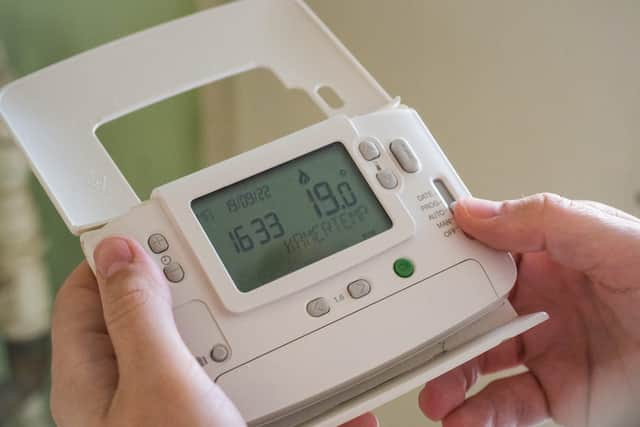July money changes you need to be aware of - including energy bills and cost of living payment
and live on Freeview channel 276
July is set to usher in new money changes affecting the outgoings of households across the UK. From energy bills to tax credit deadlines, you may risk a nasty surprise if you don’t tune in.
With the economy still in recovery, it is hard for many across Britain to keep on top of their finances but there are key changes being brought in this month that could have a huge impact on household incomes.
Advertisement
Hide AdAdvertisement
Hide AdPeople in England, Scotland and Wales are set to see a significant drop in their energy bills in July after Ofgem slashed the energy price cap. While millions of people in receipt of certain disability benefits are approaching the last day to receive their cost of living payment.
Here’s all the money changes coming in July you need to be aware of and how they could affect your bank balance.
Money changes in July to be aware of
Energy price cap cut
Ofgem confirmed the typical household will now pay £2,074 a year on its gas and electricity bill from July 1. This is £426 a year less than the previous rate which stood since October last year.
Ofgem sets the maximum price that can be charged per unit of gas and electricity to households on variable or default tariffs in England, Scotland and Wales. Therefore, suppliers can’t charge you more for each kilowatt hour (kWh) than the cap, which is set at £0.30 per KWh.
Advertisement
Hide AdAdvertisement
Hide AdHowever, this doesn’t mean you can’t exceed this total or pay more or less on your energy bill. The cap regulates how much energy you will pay for in a given hour and the £2,047 cap is an average figure households are expected to pay.


The way consumers pay for their energy, their location, meter type, and consumption, will affect whether an energy bill totals to less than or more than the average price cap. It should also be noted that while this is a reduction in how much energy firms are able to profit from you in a given hour, the government is no longer supporting homeowners with the £400 energy discount provided during the winter.
Tax credit renewal ends soon
Tax credits are Government payments which give people on low incomes, or people with disabilities, extra help - topping up income for everyday living. However, those in receipt will need to renew their claim by July 31 to make sure they continue receiving financial support.
Claimants already on tax credits should have received a renewal pack from HMRC instructing those eligible on how to renew. However, if you are yet to receive yours, call HRMC on 0345 300 3900 and enquire.
Advertisement
Hide AdAdvertisement
Hide AdAlternatively, you can renew your claim by July 31 on the HRMC app. Claimants will need their GOV.UK account details at hand.
Royal Mail sets deadline on old stamps
Royal Mail has been planning to phase out classic stamps for years, replacing them with modern barcoded prints that help mail get tracked and delivered more efficiently. The original deadline for the transition was January 31, which was extended to give residents more time to use their old stamps.


The new deadline is set to July 31 and anything posted with a classic stamp following this date will be blocked and you may be charged for a replacement stamp.
Inflation figures revealed by ONS
Inflation figures aren’t just for economists to geek over but have become increasingly useful for ordinary people to track the cost of living as the economy recovers.
Advertisement
Hide AdAdvertisement
Hide AdResidents can use consumer price inflation rates to see how goods and services have increased over time and how much more their household is forking out on their shopping.
The sudden increase in inflation over the past few years has meant consumers are getting less for their money when purchasing goods and services. Inflation hit a 41-year high last October, when figures stood at 11.1%.
The Office for National Statistics (ONS) is expected to release inflation figures for the past 12 months on July 19.
Fixed-rate mortgage changes


Currently around 85% of mortgage holders are on fixed-rate deals with most rates only lasting for five years at a time. This leads to mortgage borrowers scrambling at the last minute to find a viable deal which suits their financial position.
Advertisement
Hide AdAdvertisement
Hide AdNew measures delivered via the mortgage charter mean homeowners can now secure a new fixed-rate up to six months ahead of their current contract ending.
Lenders who are signed up to the mortgage charter must give customers the chance to lock-in a new deal ahead of time and are even required to advise homeowners on repayments and allow them to make specific changes to their loan.
The new measures come into effect July 10.
